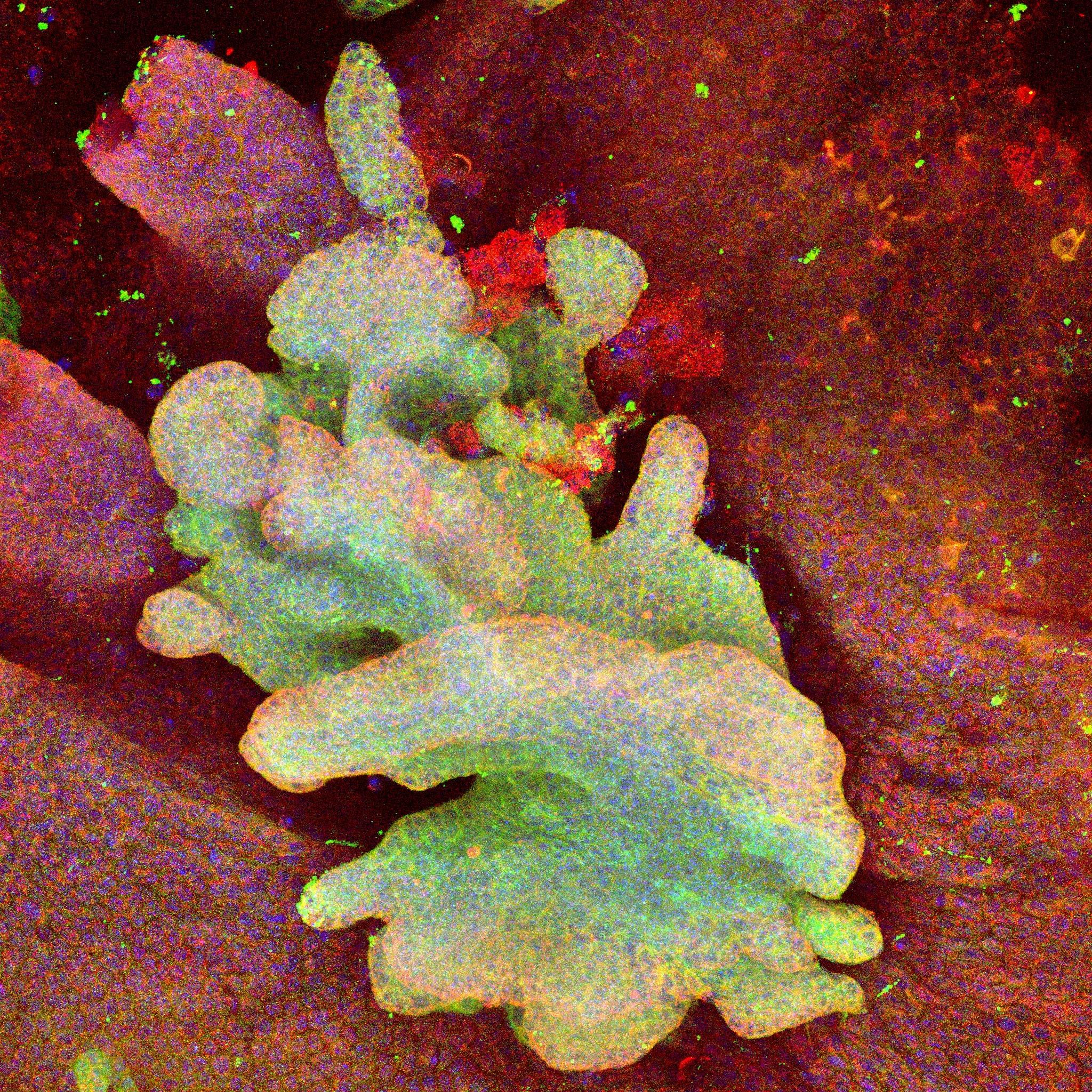
Submitted by Administrator on Wed, 16/11/2016 - 16:55
Scientists have identified for the first time the ‘cell of origin’ – in other words, the first cell from which the cancer grows – in basal cell carcinoma, the most common form of skin cancer, and followed the chain of events that lead to the growth of these invasive tumours.
Until now, there has been intense interest in the scientific field about which types of cell – stem cell, progenitor cell or both – can give rise to tumours, and how those cells become transformed in the process of tumour initiation and growth. Now, in a study published in Nature, researchers led by Professor Cédric Blanpain at the Université Libre de Bruxelles, Belgium, and Professor Ben Simons, Group Leader at the Wellcome Trust - Medical Research Council Cambridge Stem Cell Institute, have demonstrated in mice how skin stem and progenitor cells respond to the activation of an oncogene. Their studies have shown that, while progenitor cells can give rise to benign lesions, only stem cells have the capacity to develop into deadly invasive tumours.
“It’s incredibly rare to identify a cancer cell of origin and until now no one has been able to track what happens on an individual level to these cells as they mutate and proliferate,” says Professor Blanpain. “We now know that stem cells are the culprits: when an oncogene in a stem cell becomes active, it triggers a chain reaction of cell division and proliferation that overcomes the cell’s safety mechanisms.”
“While this has solved a long-standing scientific argument about which cell types can lead to invasive skin tumours, it is far more than just a piece of esoteric knowledge,” adds Professor Simons. “It suggests to us that targeting the pathways used in regulating cell fate decisions – how stem cells choose between cell proliferation and differentiation – could be a more effective way of halting tumours in their tracks and lead to potential new therapies.”
This work was supported by the FNRS, TELEVIE, the Fondation Contre le Cancer, the ULB fondation, the foundation Bettencourt Schueller, the foundation Baillet Latour, the European Research Council, Wellcome Trust and Trinity College Cambridge.
Read more: University of Cambridge
Publication details:
Sánchez-Danés A, Hannezo E, Larsimont JC, Liagre M, Youssef KK, Simons BD & Blanpain C. Defining the clonal dynamics leading to mouse skin tumour initiation. Nature; 8 July 2016; DOI: 10.1038/nature19069

